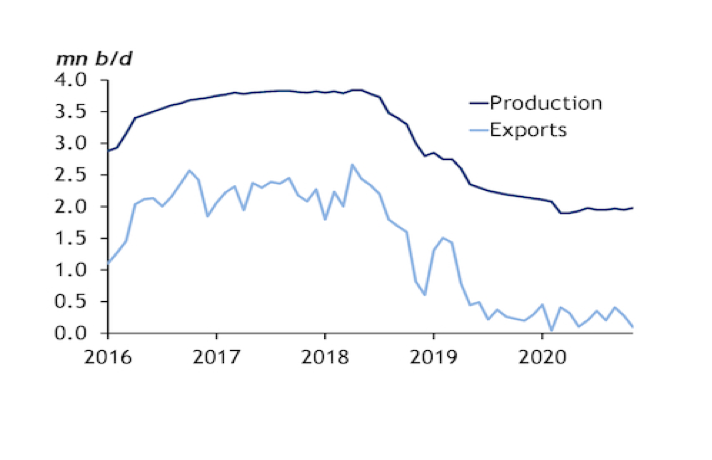Biden is viewed by oil producers (traditional and Shale oil) with suspicion. He doesn’t miss any occasion without talking about the transition to clean energy and his plans; To reduce carbon emissions from oil, reviewing the numbers of jobs he hopes to achieve under the alternative energy of Americans, on 12 December, Team Bayden-Harris issued a press release to mark five years since the signing of the Paris climate agreement, attacking the policies of his successor, Trump, who withdrew: “Over the past four years, the world has lost momentum in advancing the Convention and States and peoples in every part of the world have felt the devastating effects of climate change. We have no time to waste. The United States will join the Convention on the first day of my presidency.” Harris is also highly inclined to ban fracking activity (cracking rocks to produce oil and gas) or at least block it.

Is it within reach?
Following the price collapse, the OPEC Plus Group adopted an agreement, the largest in the history of the oil industry, to maintain a near-balance between supply and demand, with a reduction of 9.7 million barrels and more to which the United States alone contributed 1.7 million barrels to the largest response of American shale oil producers; As a result, West Texas crude prices came in negative for several days. So, Biden’s facing a big cut from the ground up, is he going to force producers to cut their already declining shares? Personally, I don’t think he’s going to do it for important reasons: No American president can reduce below the level that keeps the U.S. strategic policy on energy security at least at the limits of sufficiency. Moreover, any obstruction or attempt to pressure these companies would mean a massive discharge of employment in the industry, this will exacerbate the new administration and diminish the powers of the President of the United States to pursue his policies vis-à-vis oil companies in preventing the granting of permits for the construction of pipelines, the operation of refineries and the prohibition of oil and gas exploration in new fields. Even such means are virtually useless; Because of the support package and the decisions, Trump has passed to support producers only the Government Land Data Management Office, 12.8 million acres are produced out of the 25 million acres originally granted for this purpose.
How’s Biden going to address the issues?
In particular, in its policy towards Iran and Venezuela, the two States are major oil producers. If we see the possibility of Biden giving the cold shoulder towards sanctions against Venezuela, the situation with Iran is quite the opposite. The Iranian file is almost one of the first to be processed in the Oval Office, Tehran says it expects the United States to lift oil sanctions before returning to the nuclear agreement, But one of the most significant obstacles facing the US and Iranian administrations in returning to the nuclear agreement is how Biden will address the chaos of the decisions that Trump has left on the path to negotiations between the parties. In addition, Iranian President Hassan Rouhani said: “Next year we plan to sell 2.3 million barrels per day”; This is the figure adopted in Iran’s 2021 budget, as confirmed by the oil data firm (S&P) Oil data specialist said, OPEC had to prepare for approximately 2.5 million barrels, and Iran’s export capacity is now estimated at 400,000 barrels per day.

The “energy security” of the United States of America is a highly sensitive sovereign issue; It is, therefore, unlikely that quick and surprising decisions will be taken towards shale oil producers; Because eventually, it’s going to do damage in this particular area, and as Biden’s policy towards this file is fully conceived – Given that many U.S. oil companies are starting to expand their investment in clean, electric energy in particular – the potential and certain damage will be to OPEC, which will have to deal with 2.5 million barrels if we counted that a solution with Venezuela is not a priority for Biden’s administration.
Sources:




